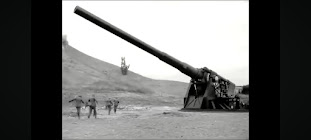INTRODUCTION :
The Great Dictator, a timeless comedy released in 1940, features Charlie Chaplin in a dual role, portraying a benevolent character resembling a notorious dictator and the dictator himself, portrayed as foolish and self-centered. Blending humors with seriousness, the film cleverly mocks authoritarian leaders, highlighting their absurd and perilous nature. Through witty satire, it exposes the ludicrousness and threat posed by dictators while advocating for peace and resistance against tyranny. Chaplin's comedic genius serves a dual purpose—entertaining audiences while delivering a powerful message about the importance of opposing oppressive regimes and championing a world free from dictatorship.
OVERVIEW OF THE GREAT DICTATOR :
"Great Dictator" is actually a film directed by Charlie Chaplin, not Charlie Champlin. This iconic 1940 film is a satirical comedy-drama that was a bold departure for Chaplin, known primarily for his silent films and slapstick comedy.
The movie is a political satire that lampoons Adolf Hitler, Nazism, fascism, and dictatorship. Chaplin plays two roles: Adenoid Hynkle, a parody of Hitler, and a Jewish barber who bears a striking resemblance to Hynkle. The plot revolves around the mistaken identity between the two characters and the barber's inadvertent involvement in political affairs.
Throughout the film, Chaplin uses humors and wit to criticize fascism, discrimination, and the absurdities of totalitarian regimes. The famous final speech delivered by Chaplin, where he steps out of character and directly addresses the audience, is a poignant call for humanity, tolerance, and peace.
"The Great Dictator" is not only a classic of cinema but also a courageous piece of social commentary. It remains relevant for its powerful message against tyranny and its advocacy for liberty and equality.
1).Background of war :-
The Great Dictator" uses humor to highlight the absurdity and harm caused by war. It portrays a fictitious conflict between two nations to satirize the behavior of leaders during wartime and the often irrational decisions they make. Through comedy, the movie aims to shed light on the seriousness of war's consequences, emphasizing the suffering it brings to people. Despite its comedic tone, the film's underlying message is a call for reflection on the significance of peace and the need to avoid the senseless nature of conflicts.
2).Role of speech :
In this movie we can clearly see the huge impact of speech by Hinkle. That speech makes an interesting compact during situations and behavior. Hinkle 's speech created a deep impact on society and on humanity also. In the speech, he talks in a funny way that doesn't make much sense, but it shows how leaders can use words to trick and control people. He wanted to take control of people and their freedom of expression and action. In this movie, the iconic scene is the ending speech delivered by Chaplin's character, not as Hinkle but as a Jewish barber. The powerful speech condemns tyranny, advocates for peace, democracy, and human kindness, offering a message of hope and unity. At the end of the movie, Chaplin gives a different speech as a different character, and this speech is really powerful. It's about being kind and working together for peace, showing how words can bring hope and make a big difference for everyone.
3). Role of Global map:
With the help of this frame Charlie Chaplin explains the condition of Hitler. In this frame we find out he was playing with the global map and he was thinking the whole world is under control of his hands and he was the only one leader of the whole world and he controlled the world and its economic systems. It was a funny scene with the deep message of how people of the 20th century were suffering with this type of global leader.
4). Satire on politics
The Great Dictator," Charlie Chaplin portrays a character modelled after Adolf Hitler, using satire to critique and condemn the actions and ideology of Hitler, Nazism, fascism, and totalitarianism. In a pivotal scene, Chaplin's character delivers a speech that is a direct parody of Hitler's passionate and inflammatory oratory style. However, instead of spewing hate, Chaplin's character unexpectedly veers into a heartfelt plea for humanity, tolerance, and peace. This speech stands as a powerful condemnation of the discrimination and persecution faced by Jews and other marginalised groups under Hitler's regime. By using humour and irony, Chaplin delivers a bold political message against dictatorship, advocating for compassion, equality, and the rejection of tyrannical ideologies.
Conclusion:
The Great Dictator" is a comedy that smartly mocks dictators while simultaneously conveying a powerful message about the importance of compassion, togetherness, and resisting oppressive rule. Charlie Chaplin's movie uses humor to spotlight the absurdities of dictatorial behavior while earnestly advocating for peace. It urges people to unite against tyranny and cultivate understanding and solidarity among everyone, regardless of differences. Ultimately, it's a call for empathy and unity in the face of oppression.
Thankyou.....😊







.jpg)
.jpg)
.jpg)
No comments:
Post a Comment